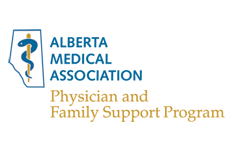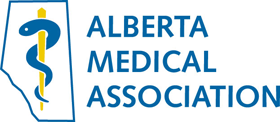The magic white coat
How doctors deal with their own illness

 Sometimes doctors get sick. You could get sick.
Sometimes doctors get sick. You could get sick.
You probably recognize these statements are true, but on an emotional level, do you really believe it?
When physicians develop an illness, whether it be physical, mental or addictive in nature, their response to it can be quite different from that of the general population.
Many of us remember suffering from “medical student’s disease,” our inclination in medical school to believe that we had all the symptoms of the diseases we were studying. In his book, When Doctors Become Patients, Dr. Robert Klitzman describes “post-residency disease,” the tendency of practicing physicians to minimize or ignore their own symptoms that are in fact present.1 It’s as if we believe that donning our white coat confers upon us some magical immunity to all maladies. After all, we fight disease, how could it attack us? Shouldn’t we have some karmic defense, something like a divine professional courtesy?
Where does this come from? I think that some of our feeling of invulnerability is adaptive. If we feared catching every infection that our patients came in with, or worried about our own risk of developing the conditions we see on a daily basis, we would all be hiding under our desks, gowned, gloved and masked. Then there’s our fear of feeling foolish if we over-diagnose ourselves. None of us wants to present to the emergency department with chest pain, only to be diagnosed with gastroesophageal reflux disease. So, we prefer to interpret our own angina pain as a little heartburn, pop a pill and wait until the infarct is well established.
In addition to this denial and minimization of symptoms, self-doctoring is common. This may start with self-diagnosing: ordering and interpreting our own tests, often while prescribing our own treatment. Rather than take on the role of patient, many doctors try to manage their own illness with the help of corridor consultations.
Colleagues can be complicit in this. Some treating physicians may find it difficult to treat the ill physician as a patient rather than a colleague. They may feel pressured to defer to the physician-patient, and may feel uncomfortable in setting limits on self-treatment. They recognize that corridor consults are inadequate medical care, but feel that it’s rude to refuse.
The boundary issues inherent in these doctor-patient relationships can be difficult to navigate. There may be some entitlement and expectation of VIP treatment on the part of the physician-patient, which paradoxically can lead to less effective treatment. The treating physician may have an unrealistic expectation of the level of understanding and the degree of insight that the physician-patient has into his/her own illness, sometimes even expecting the physician-patient to prescribe and manage his/her own medications.
Dr. Klitzman found that many ill physicians pursue more aggressive treatment than they would recommend to their patients. This might involve consulting several specialists, traveling to distant centers for treatment, or participating in experimental treatments. Some physicians experience stigmatization around their illness, particularly those with mental health or addictive illness or those with blood-borne pathogens. Even in the absence of stigma, a physician may feel ashamed of becoming ill, recognizing that colleagues will have to take on extra responsibilities. This sense of shame is exacerbated when colleagues show resentment or annoyance about their increased workload.
A positive finding from Dr. Klitzman’s study was that ill physicians were changed when they returned to practice. They showed a better understanding of the pressures and difficulties that patients face in the medical system. They understood the loss of dignity that comes with illness. They became more empathetic and more sensitive to their patients needs. They often worked in a less hierarchical fashion with both patients and staff. There was a feeling that, “we’re all in this together” rather than an “us versus them” view.
In his conclusions, Dr. Klitzman takes on the question: Are doctors bad patients? His answer is that we are different, both better and worse. We seem to have an enhanced capacity for denial and minimization of symptoms, and an inflated need for control. However, we also tend to remain hopeful, and pursue aggressive treatment. We learn from our own illnesses, which can be of benefit to our patients, colleagues and ourselves.
So, what can we do?
How can we avoid the pitfalls of being a physician-patient when looking after our own health? First of all, we need to recognize when to take off the white coat.
Here are some suggestions:
- The Physician and Family Support Program (PFSP) encourages all physicians to have a family doctor who is not a personal friend or a close colleague.
- Recognize that we are vulnerable to the same illnesses as our patients, but that we are more likely to minimize or deny our symptoms.
- Make an appointment and seek advice about health concerns. Avoid the temptation to self-doctor.
- Respectfully decline to provide corridor consultations to colleagues regarding their own health. Remind them that they deserve the same quality care that they provide to patients, and suggest that they make an appointment.
- Look after each other. If you notice a colleague who seems to be struggling, reach out with care and concern. If you have a colleague who is ill, take on the extra responsibilities with grace, knowing that at some point each of us may need some help.
- Be grateful for every day that we are healthy, and use it to connect with and learn from our patients, colleagues, friends and family.
- If you are a family physician, psychiatrist or addiction medicine specialist, join our Physicians for Physicians (P4P) team and offer to care for colleagues.
Learn more about PFSP and Physicians for Physicians >>
At PFSP we strive to enhance the quality of patient care and public safety by promoting health and well-being for the medical profession. We provide confidential support regarding health concerns for physicians, residents, medical students and their immediate families. If you have a health concern or need help with finding a family doctor, call our toll-free line at 1.877.767.4637.
Do it for your patients. Do it for yourself.®
I welcome your comments, questions or concerns about this or other physician-health related topics. Please email me.
Learn more about the Physician and Family Support Program >>
Reference
- Klitzman, Robert. When Doctors Become Patients. New York: Oxford University Press Inc. 2008.
Do it for your patients. Do it for yourself.® is a registered trademark of the Alberta Medical Association.
